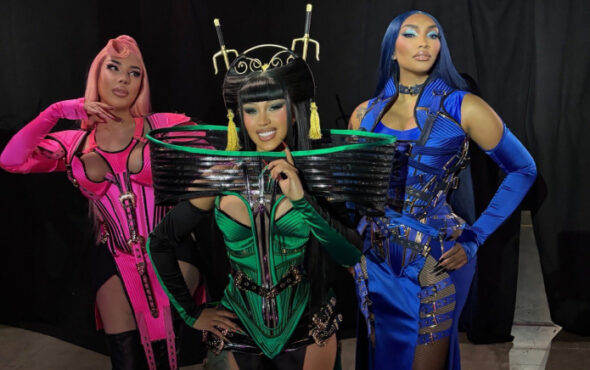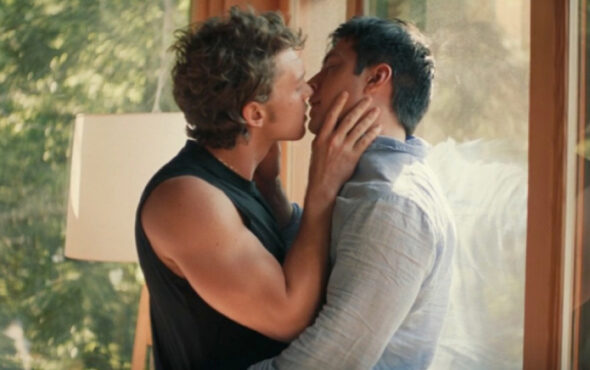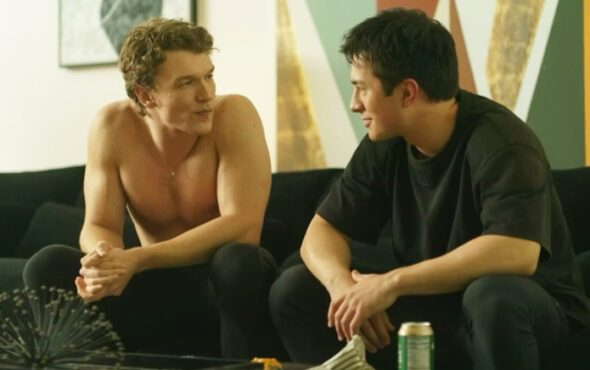
“I struggle with labels and I would rather be someone who just makes good music,” Hope Tala says over Zoom. London born and bred, Hope is a rising star melding anecdotal storytelling and fearless artistry to give way to an intrepid, thoughtful sound. A melting pot of influences, Hope’s creative avenues are hard to pin down as her style swirls together into a collage of genres. “I see it as a big mishmash of things that I’ve been listening to for a really long time,” she explains. “I always gravitate towards the late 90s, early noughties American R&B music, bossa nova, pop, indie as well. It’s all very true to the different parts of genres I like and blending everything together.”
23-year-old Hope has long used her eccentric home city as the background to her art, churning out sensitive songs feeding into her daily life. “I love the diversity here. Most of my formative experiences and my favourite memories have happened here, so I primarily write from personal experience and London’s always kind of been the backdrop to that,” she tells me. London bound days drifting through museum galleries aside, the upcoming singer-songwriter has long plucked inspiration from books, pop culture and art spaces, which comes as no surprise once she reveals she studied English literature at university. Suddenly the jam-packed bookshelves behind the artist make much more sense.
As a fresh-faced literature student, Hope found herself with idle hands and plenty of time, so, naturally, the singer took to learning the guitar. “When I got to university, I put more time into making music. That was the time I fundamentally started to take music more seriously,” she says. Hope’s love for literature and music seamlessly merged as the artist stepped into the world of music and started uploading songs on Soundcloud. Now, several years later, she is stepping on from her latest EP, Girl Eats Sun, and is moving ahead on a new secret project — a debut album. “I just got back from LA a few days ago where I’ve been making more music,” Hope knowingly slips in the conversation. “I’m working on an album right now, which will hopefully be coming out this year. There will definitely be a single very soon and lots of new music.”
As the pandemic gripped most of last year, Hope has spent plenty of time holed up in her room writing and reflecting on future projects. Once the first lockdown subsided, the singer spent more of her days creatively clued in. “I’ve been doing a mixture of writing from scratch in the studio and writing at home with my guitar. I definitely got into a lot more during lockdown when I couldn’t go to the studio,” she outlines. As the artist unspools her writing process, she explains why she strives for strong songs over a cohesive record. “I never really set out with any specific agenda other than just to make good music and songs that can stand by themselves,” she nods. “I always want to make a project that sounds like most of the songs could be singles and people could enjoy them separately. I never want to make a project where people feel like it sounds cohesive, but there are only two strong songs.”
A self-assured artist, she is unswayed on her stance and preference around music. In a loose change of subject, Hope admits she is even keen to ditch traditional industry labels. “I would much rather not be categorised. Everyone wants to put things into boxes and make things black and white. It’s frustrating sometimes. I think the most helpful category of music is good music.” What may sound like a widescreen generalisation of music is, in fact, a heartfelt understanding of how sonics naturally interplay with one another. A quick listen to Hope’s music puts this perspective into practice as her free-flowing sound meanders around delicate harmonies and lyrics. It’s a gifted style of writing that comes ever so naturally to the young artist; one nurtured in a music-friendly household where a young Hope and her family would throw three-hour dance parties together — an authentic feeling of warmth and tenderness often splayed across her own work.
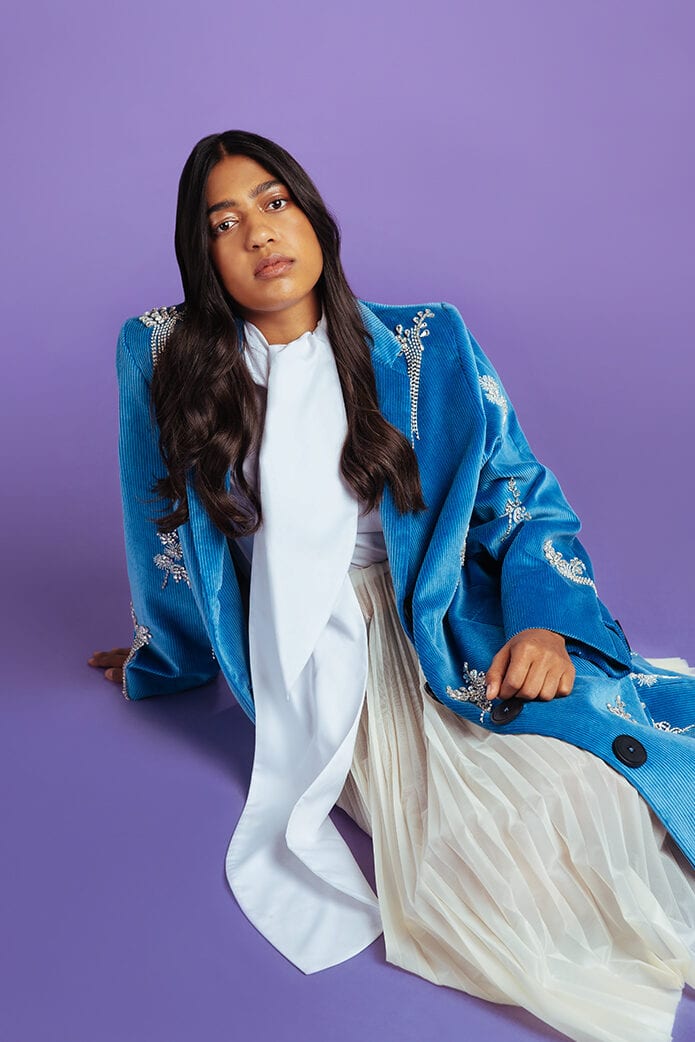
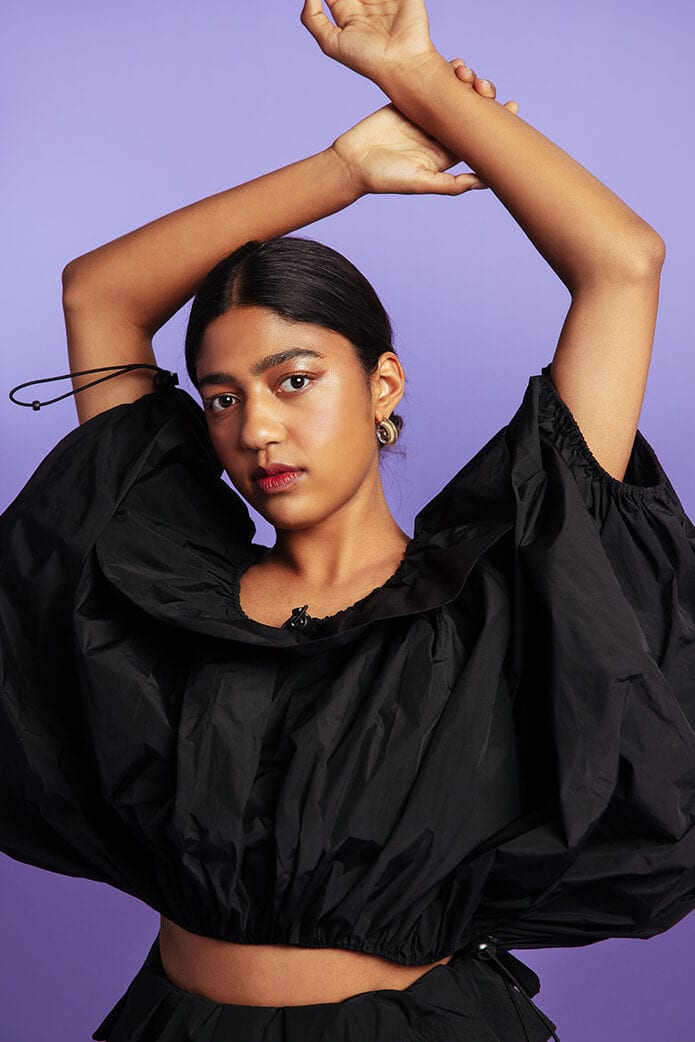
Hope Tala has become part of the next generation’s wave of unapologetic queer representation in music. Showing no signs of slowing down, she is grateful to have a platform to connect with diverse audiences, saying it has been “a nice natural progression” to her visibility. “It definitely feels like people have started to pay more attention,” she smiles. “It’s funny because when I first started making music, I never set out to be doing it professionally. I was putting songs on Soundcloud for fun. The first time I put out a song on Soundcloud was to get the attention of this girl I liked and I honestly couldn’t care less about if anyone else liked it. Then I was like ‘Wait, I actually really enjoyed doing this’ and then it turned into being really passionate, really driven and working really hard.”
LGBTQ+ visibility in music has long been a vital, much-needed space in the industry, particularly by queer people of colour. “I feel very lucky and grateful. For me, I want my music to reach as many people that need it as possible. I know, firsthand, the importance of music in people’s lives through good and bad. Music is the backdrop of everyone’s memories,” Hope explains. The singer smiles fondly while recalling moments listeners shared personal moments with the artist. “My favourite thing is getting messages being like, ‘I’m playing your song’ or ‘It’s my first dance at my wedding’ like that. It makes me feel very privileged to be part of people’s lives in that really meaningful way. I want to continue being able to do that and it’s exciting that things are happening in a bigger way.”
When it comes to Hope’s music, she is mindful of how art can offer glimpses of self-recognition and momentary escapism during tough times. “I want everyone to be able to like my music, no matter of creed, race, religion, gender, or sexuality. If I hadn’t had that music, I would have struggled quite a lot, so I’m really conscious of the fact that there are people out there who need to feel seen and represented,” she tells me. Casting her mind back, she recalls a time when music offered her solace while she was understanding her own queer identity. “When I was a teenager and questioning my own sexuality, it was really useful for me to be able to listen to music that mirrored that experience. Kehlani is the artist I always mention that was the most important to me at that time.”
Hope, like many artists, is self-aware of the responsibility that comes with her creative platform. While the singer doesn’t strive to just exclusively create art that serves the purpose of representation, she is mindful of how important it can be to her fans. “I think that’s a real bonus of writing music. It’s not why I write music, but that’s definitely a part of why I love making music,” she agrees over the call. “I’m hopefully making that difference for some people. My main responsibility is to tell a story that people can make their own. It’s really important that people feel represented and I’m just so happy that I can contribute to that.” Alongside campaigns like Elevate – our groundbreaking collaboration with Apple Music to platform and support LGBTQ+ music acts as they break through into the mainstream – Hope is backing the rise in attention that diverse LGBTQ+ voices are getting across the media. “There are so many artists that I feel like we’re getting traction and the time of day from audiences and we’re being promoted to be seen by people who need to see us. There’s such a great music community in the LGBTQ+ world and that’s so amazing to see because when I was 14 that didn’t exist in the same way.”
Our conversation turns to what Hope has planned next. With an album already in the works and singles soon ready to debut, I ask if she would consider making a fully-fledged LGBTQ+ anthem. The singer muses over the question. Whether it’s hit songs Crazy or Lovestained, she often pads out her writing with intentional ambiguity and space for creative interpretation. “I can’t speak for future Hope, but maybe. I’m trying to be making music until I’m 95,” she says lightly. “A lot of my favourite writing is deliberately ambiguous. Sylvia Plath is my favourite poet because each of her poems feels like you’re doing a puzzle. It takes me at least 10 reads to understand what she’s saying. I don’t want my music to be opaque or inaccessible, but her poetry is quite difficult sometimes and that’s what I love about it. I always wonder if I hadn’t discovered her poetry if I’d ever been writing music at all. I’ve always been inspired by that mode of writing where things are left up to interpretation.”
Literary greats have long shaped Hope’s work. Behind her, a copy of a Shakespeare play peeks out behind her left shoulder. “It’s hard to talk about without sounding really cliché and pretentious, but I see reading as something I have to do. It’s like breathing for me,” she says warmly. “I can’t remove that from the way I write and what I gravitate towards my lyrical inspirations – I think they’re very much tied together. If I hadn’t been a reader from a really young age I probably wouldn’t be an artist. It’s aided my imagination throughout my life and has exposed me to the world in different ways. Sometimes I will write songs based on a particular idea that I’ve read in a book or a poem, but it kind of happens through osmosis.”
Openly immersed in the world of pop culture, the singer’s interests and inspirations spill over into the world of film too. “I watch the same movies over and over. I don’t know what that says about me, about myself!” Hope laughs, as she starts thinking of movies she loves to binge. “Clueless and 10 Things I Hate About You are my two favourites – I find myself being endlessly inspired by those two films. I love 90s rom-com, teen movies. I recently watched Save the Last Dance for the first time and that is going to be added to my rotation.”
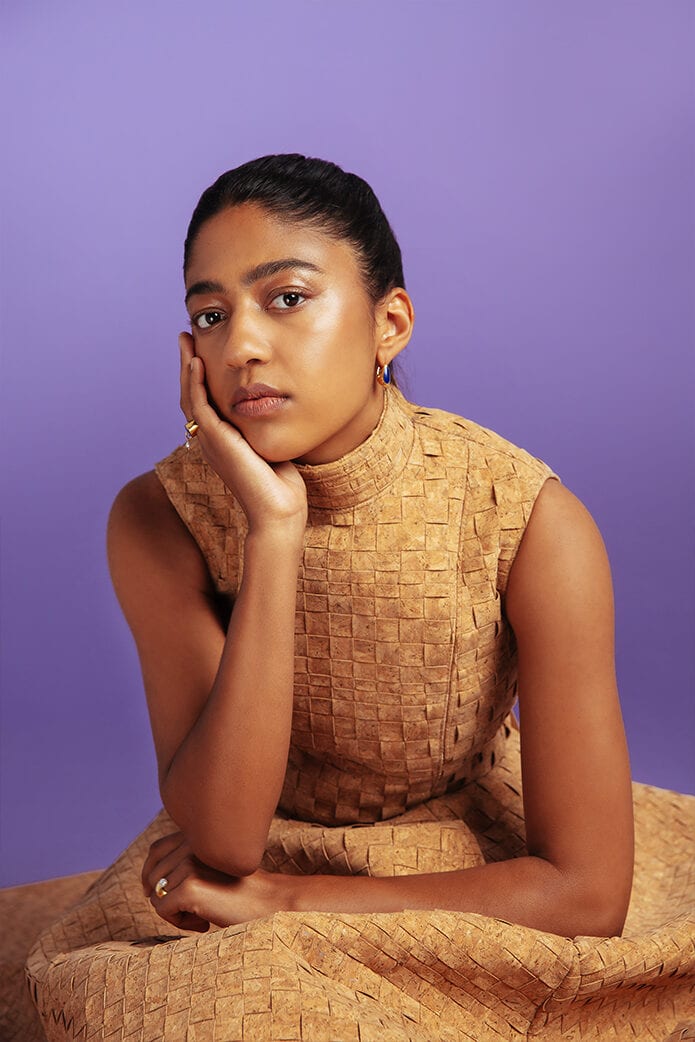
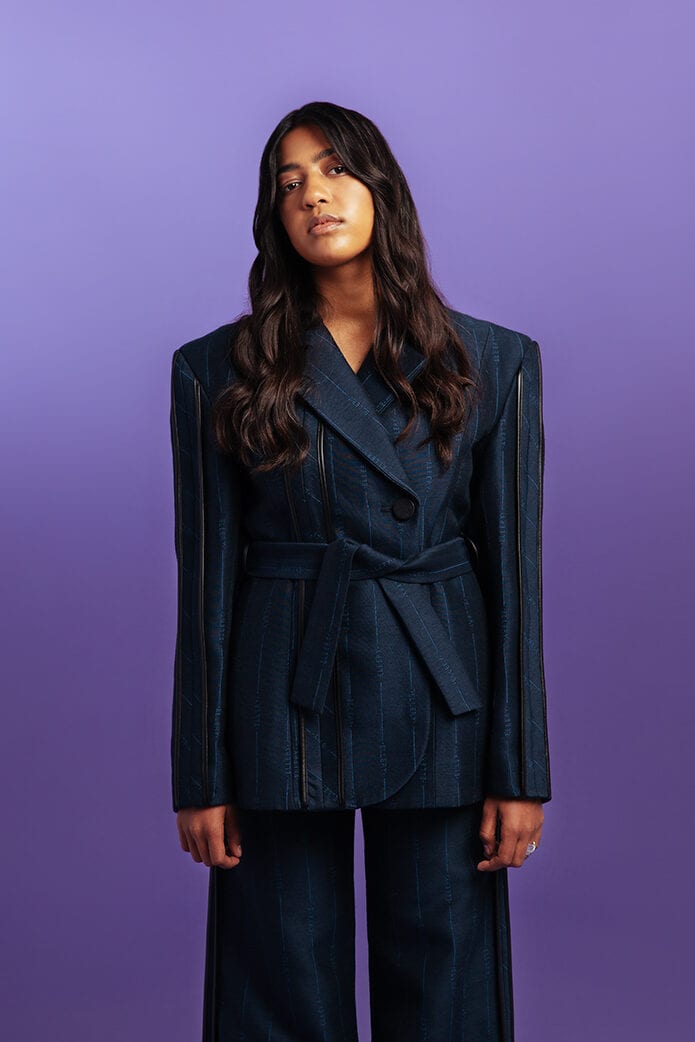
As Hope paves ahead with a new era of music and an eagerly sought after album, the singer is stepping forward with greater self-assurance in her artistry and identity than ever. Revisiting the topic of songwriting, the singer peels back her memory reflecting on her own music that helped her explore her sexuality. “The second song I ever put on Soundcloud, back in 2016, called Skit is a big one. That was the first song where I use female pronouns talking about someone else,” she says pensively. “My song Eden from my first EP that was on Spotify, and Mulholland, which is a newer one.” As we volley back-and-forth over tracks, the singer touches back on the newness of her identity. “This is always something I’m working through. Even though it’s been years since I first started questioning my sexuality, it’s still something that I’m figuring out and working through, and those three songs are from quite different periods of my life thus far.”
As our conversation draws to a close, I ask the singer if she could positively summarise her queerness. “[Being queer] taught me, from a young age, to be resilient in the face of adversity. I think it’s really made me a much stronger person than I would have been otherwise, and I think that’s a really incredible, positive, amazing thing. It’s taught me so much about the world around me that I wouldn’t necessarily know otherwise,” she tells me. Her personal privilege isn’t lost on the singer either. “I’m really lucky to be born when I was. I think things are increasingly improving, but I never know if there are more queer artists of colour getting respect and attention, or if just now seeking them out,” she admits. “When I was first questioning, I couldn’t really find many artists, but maybe I found the right places to find these artists now. I feel lucky to be someone who has always been a big consumer of culture and music and books. Art in general, no matter what type of art is, is amazing because you can see yourself in that. If I hadn’t been a big reader, it would have been harder to feel at peace with myself. I think it’s easier to find books and music by Black artists than it has been finding art that portrays the LGBTQ+ experience.”
But, more than anything, being queer has taught the singer to be fearless. “Growing up, as a mixed-race Black person, you grow up with that out of the womb, and being queer has definitely taught me to be myself in the face of a world that can be hateful towards that,” she says. “To be joyful and myself regardless, no matter who’s saying what, or what I’m seeing in the news. I’m constantly looking for my own peace, self-love and that’s been very valuable to me.” An unshakeable star, Hope stands true to her promise of making good music, and we can’t wait to see what she does next.
